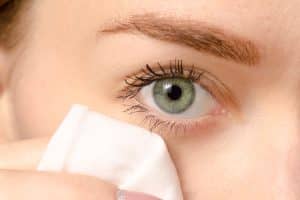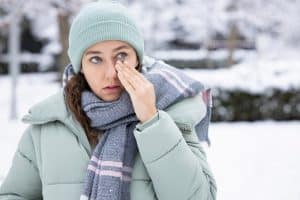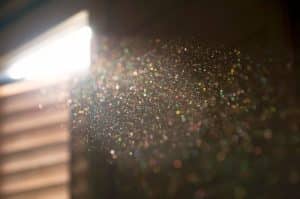When you’re looking for a product to alleviate irritated eyes, it makes sense that you’d want to be sure you’re choosing the best option for your health and budget. In terms of drops for dry eyes, one of the biggest decisions you’ll have to make is whether to opt for products that contain preservatives or their preservative-free counterparts. So, are preservatives a bad sign in eye drops?
What are preservative-free eye drops?
You might think that preservative-free eye drops are precisely what they sound like – eye drops that are free from preservatives – but things aren’t always quite that simple. When people talk about preservative-free eye drops, they may be talking about one of two types of products. These are:
- Gently preserved eye drops – these drops contain preservatives which break down upon contact with your eye. This helps to limit adverse effects while extending the shelf life of the products.
- True preservative-free eye drops – this type of eye drops contain no preservatives.
Although it might seem counterintuitive to group together both types as preservative-free, people often do in order to take account of the fact that neither will contain preservatives once applied to the eye. This means you’re less likely to suffer irritation or other unpleasant side effects related to the use of preservatives in the products. However, it’s important to note that gently preserved eye drops do still contain preservatives although they may be a better choice if you often experience sensitivity linked to preservatives in eye drops.
The alternative to preservative-free and gently preserved eye drops are products that contain preservatives that last even after the drops are applied to your eyes. As the preservatives remain intact, there is a greater risk of irritation.
Why use preservative-free eye drops?
It’s clear that preservative-free eye drops are believed to cause less irritation to the surface of your eyes when used regularly, but what if you only use eye drops occasionally? Although the inclusion of preservatives makes it more likely that you’ll be able to use up your eye drops before they expire, there are other factors to consider.
One such important factor is how well the eye drops tackle your dry eye condition. Research suggests that the most commonly used eye drops preservative, benzalkonium chloride, can result in a smaller degree of improvement when compared to preservative-free or gently preserved alternatives. In other words, eye drops containing benzalkonium chloride may not relieve your dry eye syndrome as effectively as preservative-free eye drops.[1]
It’s also recommended by the NHS that eye drops containing preservatives may be less well suited to those who wear contact lenses or expect to use eye drops more than four times a day. On top of that, it’s important to think about the overall level of preservatives making contact with the surface of your eye. For example, if you use other eye treatments that contain preservatives, you may be best to choose a preservative-free or gently preserved type of eye drops in order to avoid irritation caused by excessive preservative exposure.[2]
Finally, it may be worthwhile to consider when and where you’ll be using eye drops. For daytime use, minor irritation may be less noticeable because you’re busy and distracted with your everyday tasks. If you find the irritation from traditional preservative-containing eye drops will prevent you from concentrating, then a gently preserved alternative such as TheraTears® Dry or Tired Eye Drops may be the better choice. As well as containing quickly broken down preservatives to maintain sterility while limiting irritation, these drops also contain witch hazel to reduce puffiness and redness around your eyes.
At night time, irritation can be even harder to ignore, especially if you’re trying to get to sleep. It might even be enough to keep you up at night – which may in turn make your dry eyes worse. To avoid that risk, preservative-free TheraTears® Overnight Eye Drops could be the answer, with cross-linked hyaluronic acid to repair and refresh your eyes while you sleep.
Resources:
[1] Walsh, Karen, and Lyndon Jones. “The use of preservatives in dry eye drops.” Clinical ophthalmology (Auckland, N.Z.) vol. 13 1409-1425. 1 Aug. 2019, doi:10.2147/OPTH.S211611 Available at: https://www.ncbi.nlm.nih.gov/pmc/articles/PMC6682755/







